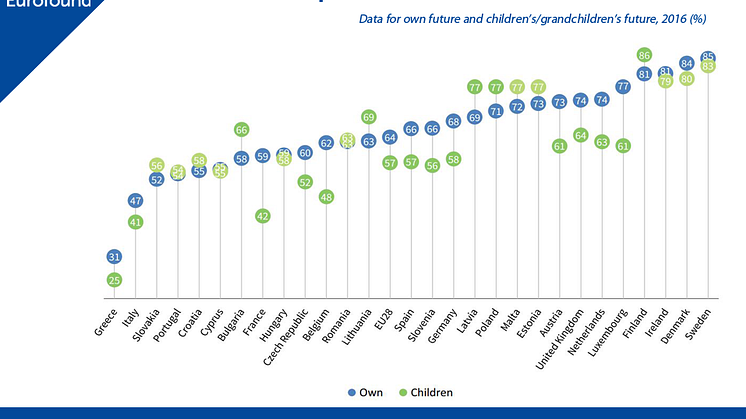Nurturing innovation at work
Companies that encourage their employees to participate in broad decision-making around operations or strategic direction can not only improve job satisfaction, but also increase levels of innovation.
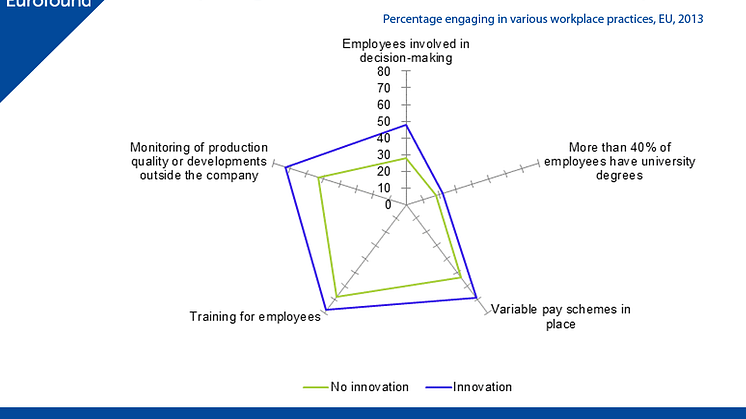
Companies that encourage their employees to participate in broad decision-making around operations or strategic direction can not only improve job satisfaction, but also increase levels of innovation.

Employment is at its highest level ever in the EU, and the employment recovery is now well-established in Europe. But is it being felt in all countries?
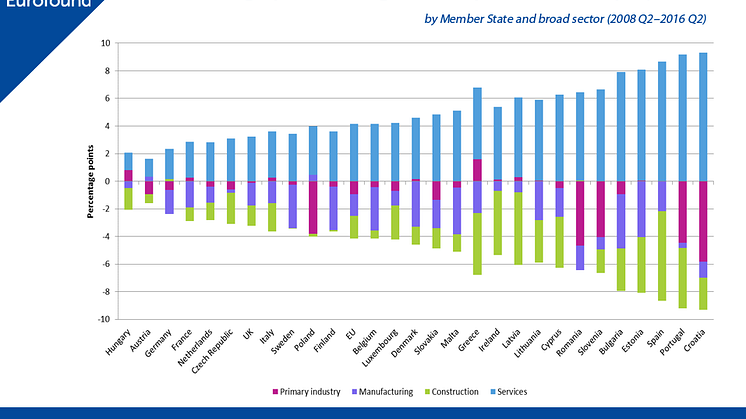
The number of people active in the labour market is at an all-time high, ratings for key public services are increasing and there is a marked recovery in trust in national institutions in many Member States, these developments are detailed in Eurofound’s latest Living and working in Europe yearbook for 2017.
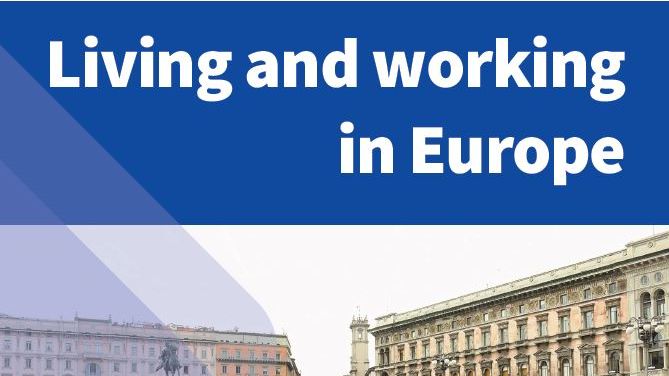
Invitation to 'Future jobs - current challenges: Cedefop 2018 Skills forecast' launch event, in Brussels on 8 June 2018

The onset of the digital revolution has resulted in technological advances that are constantly evolving. This report reviews the history of the digital revolution to date, placing it in the context of other periods of marked technological advances and examining how technological change interacts with changes in institutions.
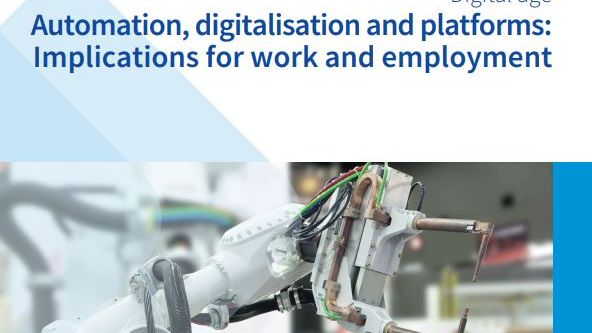
Increases to minimum wages have gathered pace since 2010, with the highest increases recorded in countries which had the lowest minimum wages. However a large gap remains, with minimum wage workers in Bulgaria, the country with the lowest statutory minimum wage, earning just one-eighth the salary of minimum wages workers in Luxembourg, which has the highest rate.
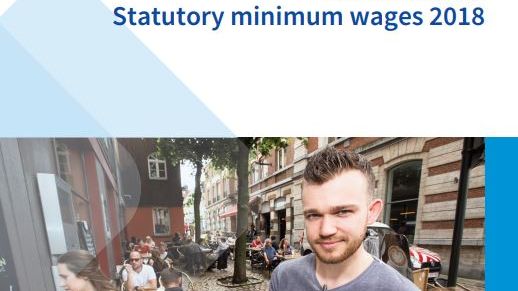
The new report Game changing technologies: Exploring the impact on production processes and work summarises the findings of five case studies on the likely impact of game changing technologies on production and employment in the manufacturing sector in Europe up to 2025.

The Heads of the EU Agencies have pledged to communicate to their staff that harassment in the workplace is not acceptable, to ensure respect for existing laws and the staff regulation, to promote diversity at work, and to provide a trusted environment in the workplace.
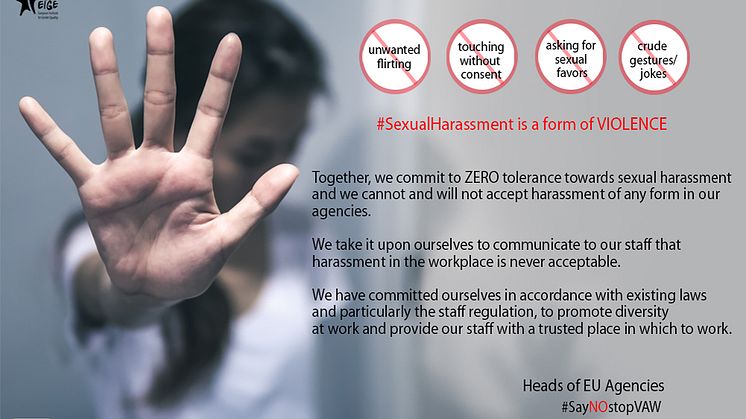
Eurofound and the European Economic and Social Committee, under the banner of the Bulgarian Presidency of the EU, bring together representatives of the social partners, EU institutions, national and regional representatives, practitioners, civil society and academics to debate on access and quality of public services in EU28, as highlighted in Eurofound’s European Quality of Life Survey.
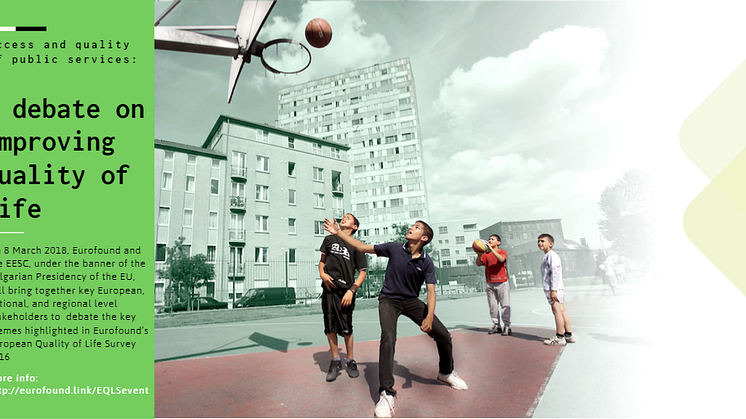
Ahead of International Women’s Day on 8 March we invite you to explore the issue of gender equality in depth, to read about the different areas in which gender equality is most urgently needed. Eurofound assists in the development of better social, employment and work-related policies for all EU citizens and those that call Europe home.

People in the lowest income quartile in the EU are going without fresh fruit and vegetables to save, and a higher proportion are buying cheaper cuts of meat or buying less meat because of money concerns. This practice is occurring throughout Europe, but there are vast differences between Member States.
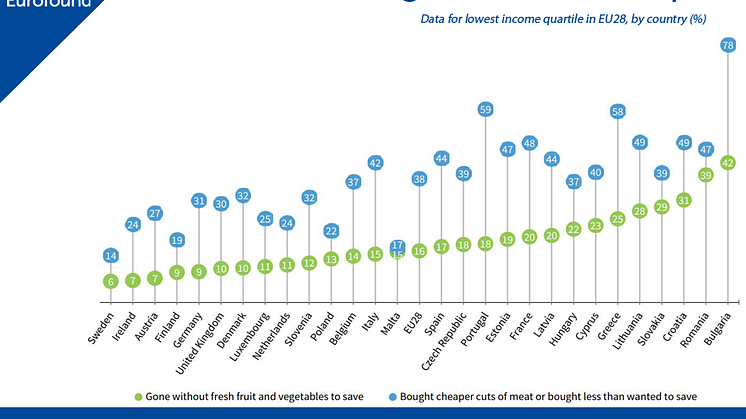
People surveyed about their optimism for the future in Eurofound’s European Quality of Life Survey (EQLS) were more optimistic about their own future in 2016 than they had been about the future in general in 2011. This growth in optimism can partly be attributed to the improved economic situation in Europe since 2011.
